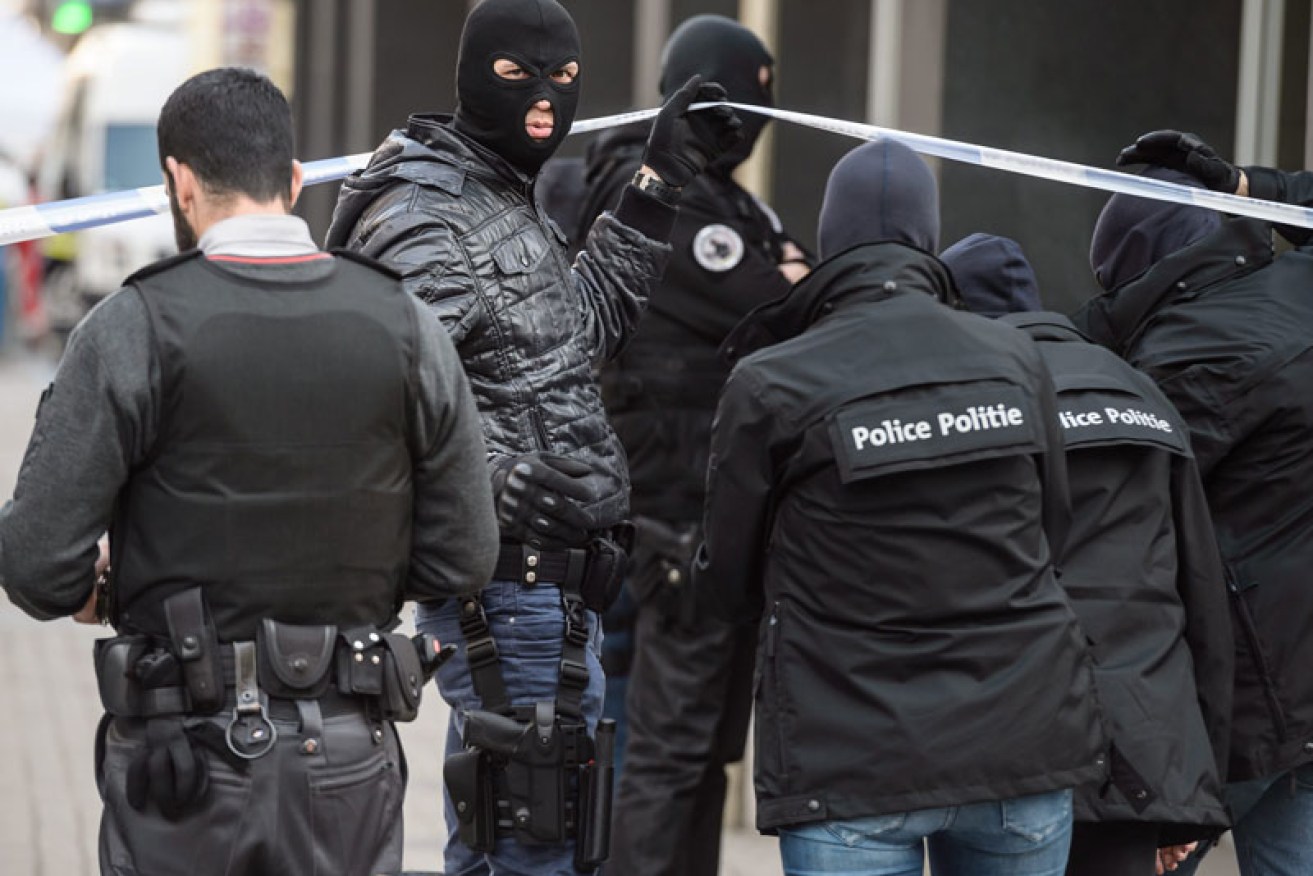PM: Brussels attacks highlight Europe’s porous borders

EPA
Belgium’s Ambassador to Australia says it is “dangerous” for Prime Minister Malcolm Turnbull to link the European refugee crisis with this week’s deadly attacks in Brussels.
Mr Turnbull used a speech at the Lowy Institute on Wednesday night to warn that the Islamic State (IS) terrorist group was using the Syrian refugee situation to get extremists into Europe.
He said the recent terror attacks in Brussels highlighted the “porous borders” of Europe and went on to praise Australia’s strict approach to border control.
• Belgium-style attack ‘could happen in Australia’
• Brussels suicide bombers ‘known to police’
• Europe let security ‘slip’ ahead of Brussels attack: PM
“For all intents and purposes there are no internal borders in Europe and their external borders are difficult to manage,” Mr Turnbull said.
“Australia is better placed than many of our European counterparts in dealing with the threat of terrorism because of the strength of our intelligence and security agencies, our secure borders and our successful multicultural society; one that manages to be both secure and free.
“The attacks in Brussels are an unfortunate reminder of how Islamist extremism appears to have reached a crisis point in Europe.
“Governments are confronted by a perfect storm of failed or neglected integration, foreign fighters returning from Iraq and Syria, porous borders and intelligence and security apparatus, struggling to keep pace with the scope and breadth of the threat.
“For all intents and purposes there are no internal borders in Europe … and the external borders are difficult to manage.
“Recent intelligence indicates ISIL is using the refugee crisis to send operatives into Europe.”
But Belgium’s Ambassador to Australia Jean-Luc Bodson has cautioned against linking the issue with the deadly attacks in his homeland this week.
“It’s dangerous because it’s precisely what ISIS wants — that we would make a confusion between terrorism and migrants and between terrorism and Islam,” he said.
“My view is that the terrorists who committed the latest attacks and in Paris and in Belgium are European-raised and born. Maybe from foreign origins, but they are Europeans.
“So it has nothing to do with the refugee crisis and I think that is the main danger to assimilate that.”
Mr Turnbull made similar remarks earlier on Wednesday, when he told the ABC security arrangements in Europe had been allowed to “slip”.
Opposition Leader Bill Shorten has spoken out against the remarks, saying it was too soon to “hand out advice”.
.@TurnbullMalcolm says #BrusselsAttacks highlight Europe’s porous borders https://t.co/ImQp51ukF5
— ABC News (@abcnews) March 23, 2016
Mr Turnbull also noted in his speech the work of Indonesian President Joko Widodo and his commitment to promoting a tolerant and inclusive Islam.
“He says again and again, Indonesia is proof that democracy, tolerance, moderation and Islam are compatible,” Mr Turnbull said.
“Australia has a vital interest in seeing President Widodo’s commitment to tolerance succeed.
“The executive director of the Islamic Council of Victoria wrote to me to say that the mere fact of my mentioning President Widodo’s example has helped in combating extremism and promoting better, more tolerant and mainstream understandings of Islam and the Muslim world.”
‘Defence white paper vital in ensuring Australia’s security’
Mr Turnbull also spoke on the importance of his government’s recent defence white paper, stating it was vital in ensuring Australia’s security into the future.

Prime Minister Malcolm Turnbull says Australia’s defence white paper is crucial to the nation’s security. Photo: AAP
He said within two decades, “half of the world’s submarines and at least half of the world’s advanced combat aircraft will be operating in our region”.
“We simply have to do more and work harder to maintain our influence,” he said.
“That is what our new defence white paper is all about.
“It is rigorous, it is fully costed, it is the blueprint that shows how we will develop our defence industries and continue to play our part in providing the measured balance upon which regional security depends.”
Mr Turnbull also addressed tensions in the South China Sea, saying China’s actions were “creating anxieties and raising tensions”.
“They are therefore counterproductive, regardless of the legal merits on which we do not express a view nor make a claim,” he said.
“Disputes of the South China Sea should be settled by international law, not by creating facts on the ground, or in this case land in the water. The growth of our region, especially China’s has depended on a long period of more than 40 years of relative tranquillity. There is too much at stake to risk disturbing it.”








